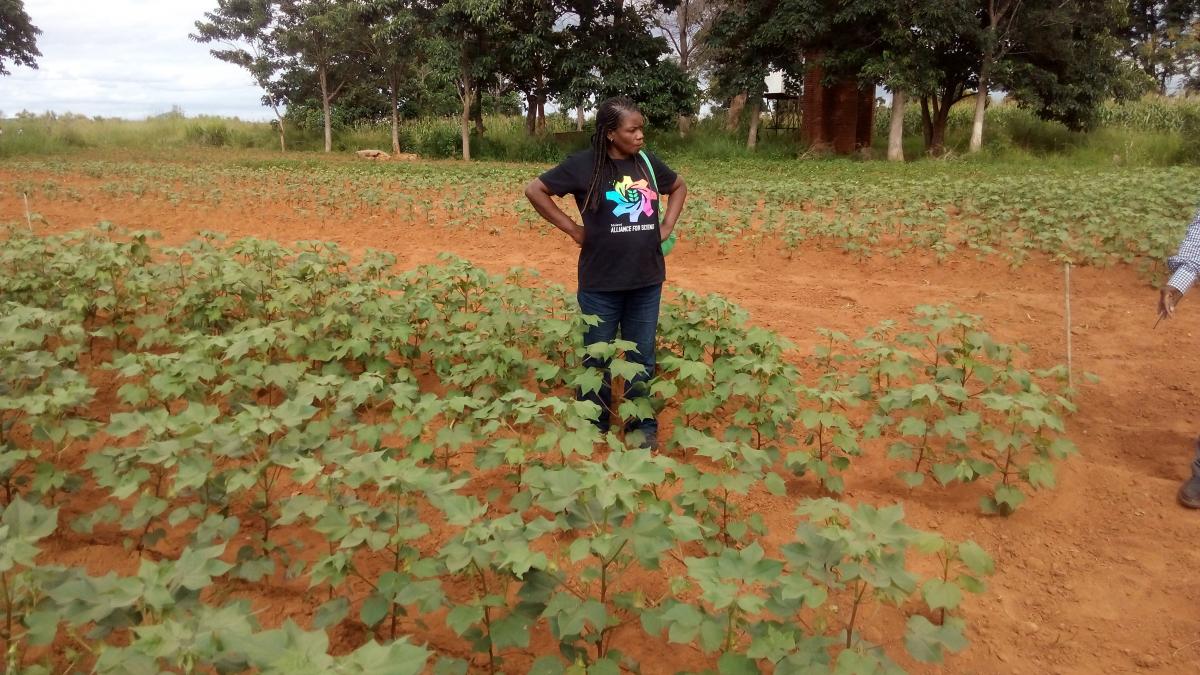
Bolstered by a solid and functional biosafety framework, Malawi is one of the few countries in Africa poised to move forward in commercializing genetically modified crops, with cotton, cowpea and banana now in field trials.
The Biosafety Act was passed in 2002, biosafety regulations in 2007 and the National Biotechnology and Biosafety Policy was enacted in 2008. Malawi has a fully functional biosafety regulatory committee that deliberates on applications for trials, and a functional biosafety registrar s office.
These instruments have made it possible for Malawi to progress with trials of three different genetically modified crops, which are now at different stages, as Malawi gears up for commercializing GM crops. Bt cotton is at the variety registration trial stage, while Bt cowpea is in its second year of confined field trials (CFT) and virus resistant banana is in its first year of CFTs at proof of concept stage.
The Bt cotton trials have made significant progress. After three years of successful CFTs at Lilongwe University of Agriculture and Natural Resources (LUANAR), an application for environmental release was made to the National Biosafety Regulatory Committee (NBRC) and approval was granted in April 2016. Bt cotton was deregulated and the Ministry of Agriculture, through its Department of Agriculture and Research Services (DARS), has been carrying out the variety registration trials on the open field since December 2016. After three years of the trials, Bt cotton will be commercialized.
The trials are being conducted in nine field sites in all the regions of the country, and they are progressing very well. Farmers are already asking for the seed, but are being made to understand that there has to be a process for the seed to be released to them. However, their hopes are high after being told that if all goes according to plan, the seed will be released in the next three years.
Bt cowpea is in its second year of trials, also at LUANAR. The trials are testing the efficacy of the Bt gene against the maruca vitrata, which is a notorious pest for the cowpea grown by many small-holder farmers in the country. Farmers have been known to lose up to 90 percent of their yield due to this pest. After three years of CFTs, it is planned that the trials will be conducted in different locations where Bt cowpea is primarily grown.
The virus-resistant (VR) banana trial is being conducted to respond to the devastating bunchy top virus that has almost wiped out all the banana plantations in Malawi, forcing the country to import banana from Tanzania and Mozambique. The trials are being conducted with support from the Queensland University of Technology in Australia. The trials are still at the proof of concept stage
The progress made with these three trials positions Malawi as one of the few countries in Africa moving towards the commercialization of GM crops, and it s all thanks to the political will of the Government of Malawi and the county s workable biosafety framework.
Katherine Chaweza is a 2016 Alliance for Science Global Leadership Fellow and the communication and outreach coordinator for the Programme for Biosafety Systems in Malawi.
